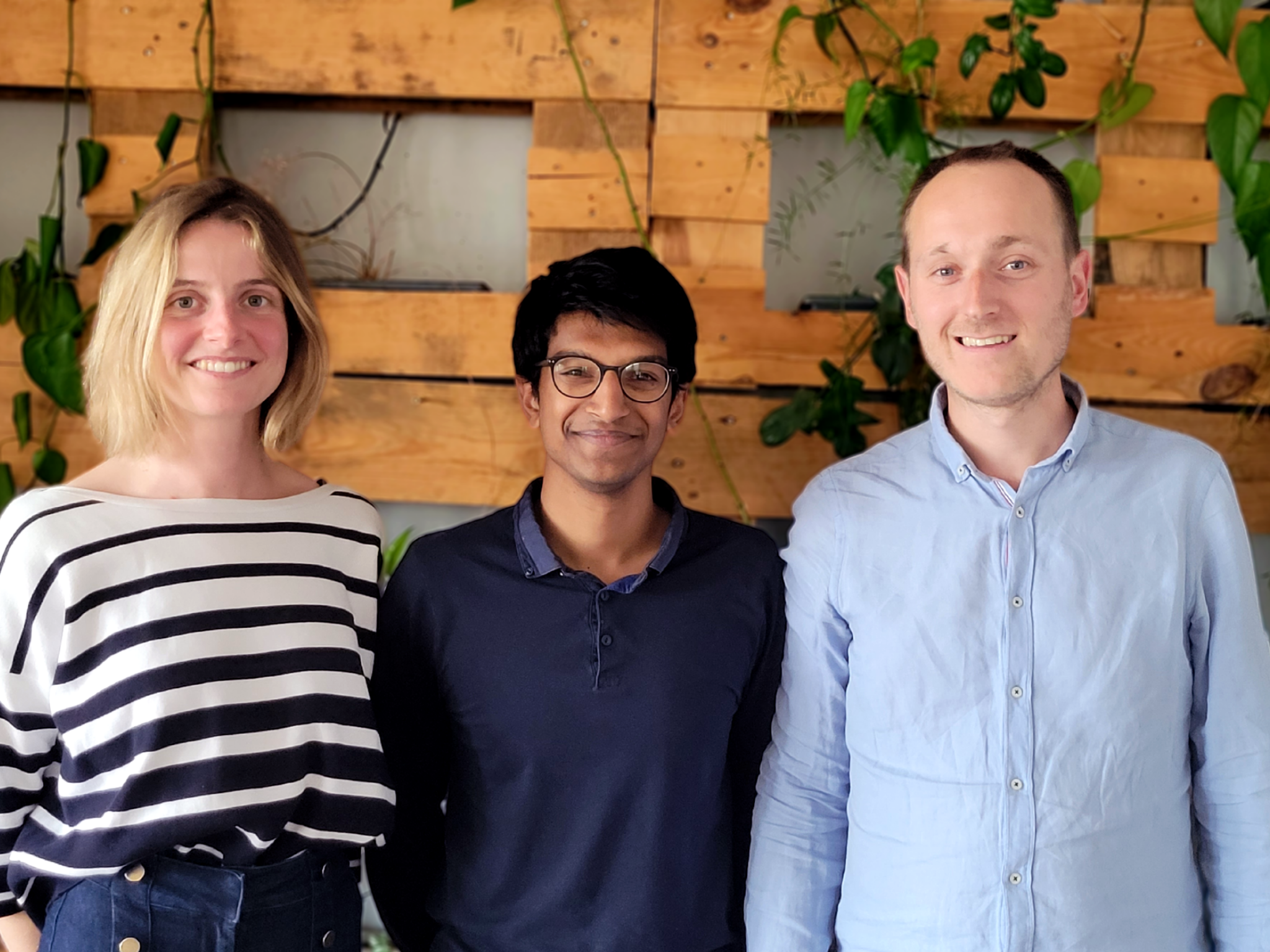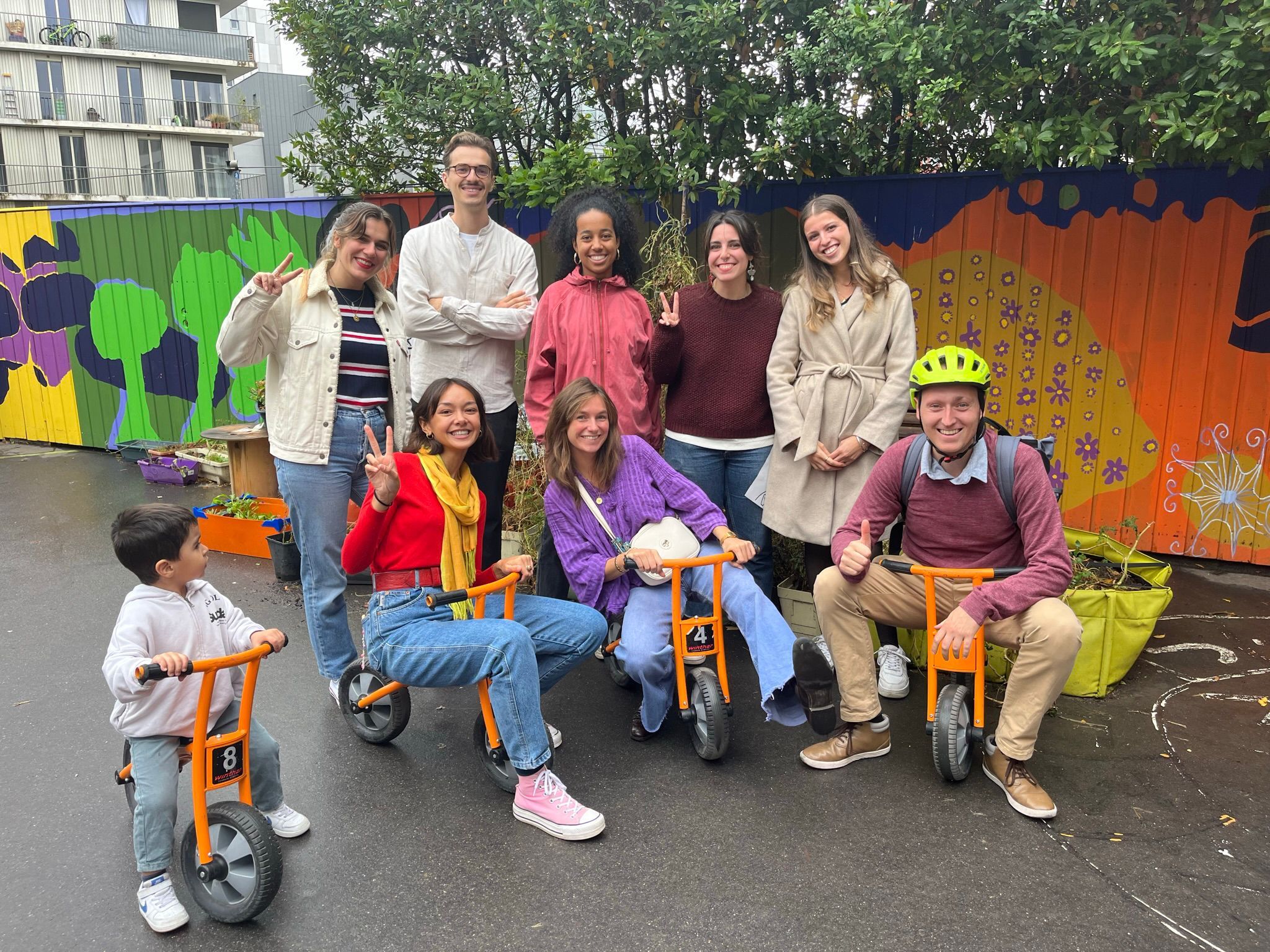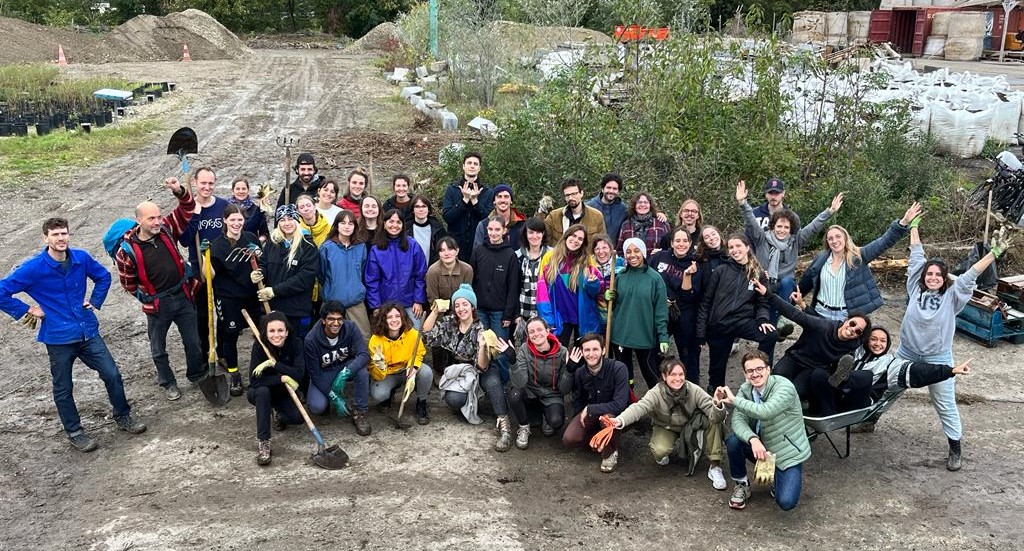
Clément Debosque
After experiencing the 2019 heatwave in Paris, Clément Debosque co-founded Ma Petite Planète, an initiative born out of his desire to take action against climate change. Struggling to motivate those around him to adopt eco-friendly habits, he decided to create an innovative concept.
Together with Mathilde Hebert and Christian Nallatamby, Clément developed an ecological challenge inspired by video games and competition. Ma Petite Planète aims to turn the ecological transition into a fun and engaging challenge, raising awareness about sustainability and encouraging concrete actions through daily challenges. The concept quickly gained momentum, with improved editions and a growing community of contributors.
The main goal of Ma Petite Planète: to engage everyone in the ecological movement, highlighting the accessibility of eco-friendly actions and collective responsibility.
Hello, Clément,
Why did you start Ma Petite Planète?
It all started as a very personal story. I was deeply affected by the heatwave in July 2019 and felt the need to act on ecological issues. I began my own journey toward sustainability, but soon wondered how to involve those around me in this journey. That’s where the idea of creating a collective and motivating experience came from. The traditional approach, using rational arguments, wasn’t working very well.
I drew inspiration from the football game Mon Petit Gazon, which has brought together millions of players. There was no reason we couldn’t mobilize millions of people around ecology and planet protection! Ma Petite Planète was born out of this desire to act and a hunch: that games and a collective approach could motivate people to engage with sustainability.
How did you adapt your desire to promote ecology into a playful approach?
We implemented a process of iteration and co-creation with our community. So far, we’ve run 27 editions, including 16 for adults and 11 for schools. We identified 10 key drivers for taking action. Since ecology is a team effort, forming teams in Ma Petite Planète is crucial. The social dimension is also important: participants share their accomplishments during the three-week challenge. We offer challenges suitable for all levels and encourage participants to push themselves through points, badges, and even rewards from our partners. Our ambition is to create new narratives around ecology in a joyful and motivating environment.

The 3 co-founders : Mathilde Hebert, Christian Nallatamby and Clément Debosque
Could you provide concrete examples of the daily challenger players tackle?
During the adult edition, 16 different themes are covered, providing a comprehensive and holistic view of sustainability that goes far beyond carbon footprints. These themes include biodiversity, water pollution, soil pollution, food, waste, mobility, energy, DIY (do-it-yourself), and second-hand consumption.
Here are some concrete examples of challenges participants can tackle:
“No new items for 3 weeks”
Participants are encouraged to avoid buying new products and instead opt for second-hand items or bartering. This challenge promotes reflection on consumption habits, and many participants successfully avoid purchasing new items during this period.
The Vegetarian Week
Many participants try a vegetarian diet for the first time, discovering new eating habits and reducing their ecological footprint.

Bike-to-work initiative
Participants are encouraged to commute to work by bike instead of using cars or public transport.
Composting or gardening
Some participants take up composting or gardening, reconnecting with issues related to soil and food.
Skill-building
Participants improve their knowledge of ecology by listening to podcasts, starting a MOOC, and more.
The legendary challenge
Each edition features a particularly tough challenge, designed to encourage participants to surpass themselves in their ecological efforts. These challenges are accessible to everyone, regardless of their level, and allow participants to experiment with sustainable practices in their daily lives.
Tell us about the association’s mission to make ecology positive, dynamic, and accessible. How do Ma Petite Planète players and ambassadors contribute to this goal?
Our mission is not only to raise awareness but also to encourage as many people as possible to take action to protect the planet and living beings. What sets us apart from many other initiatives is our focus on action. It’s not just theoretical—“Oh, I know this, I understand it”—but rather, “Okay, I know, I understand, and I act accordingly.”
We tailor our approach to different audiences. Individuals can involve their friends, while people in companies can mobilize their colleagues and advance their organizations on ecological issues. We offer services to companies, local governments, and universities to help employees or students make progress on these topics.
We also developed Ma Petite Planète Scolaire, an educational tool for teachers from preschool to high school. This tool enables educators to engage children with concrete actions, starting with the youngest..
The challenge format makes the approach playful and accessible, showing participants what they can do to take action in a very tangible way. Each 3-week edition includes a list of 50 challenges for children and 70 for adults. Participants can act at their own pace and according to their preferences, aiming to complete as many challenges as possible. Our goal is to establish new long-term habits, even after these short challenge periods.
How can participating in Ma Petite Planète lead to lasting ecological habits?
The idea behind Ma Petite Planète is to provide a powerful three-week experience that encourages participants to experiment with and adopt concrete ecological actions. This helps establish new habits that persist even after the challenge.
For instance, trying a vegetarian week or going plastic-free for a week helps participants realize these changes are not as difficult as they seem and explore viable alternatives. Many participants reduce meat consumption, pay closer attention to their environmental impact, choose ethical banks, or join an AMAP (community-supported agriculture) after the challenge, which can be transformative.
Our ambition is to support all sectors of the ecological transition, focusing mainly on France for now, though we have European aspirations. We emphasize concrete actions by individuals to contribute to this long-term transition.
Education is also a cornerstone of our mission. We firmly believe that starting young makes it easier for children to adopt good ecological practices. We’ve observed a significant impact on children who, after participating in our challenges, internalize these practices as second nature. They then share their knowledge and new habits with their families, creating a ripple effect that positively influences their wider circle.
What’s next for Ma Petite Planète?
Our ambition is to become the go-to challenge in Europe for ecological action. Ultimately, we aim to involve several million participants and validate hundreds of millions of challenges through our community. Currently, we have 436,000 participants and 5.6 million challenges completed.
We’re focused on strengthening our presence in France and becoming the go-to option for those who want to engage others in ecological transition. At the same time, we’re gradually internationalizing our movement thanks to 250 volunteers, including 30 translators, who run the game in English, Spanish, German, and Italian, allowing us to reach a broader audience.
Another key aspect of our mission is addressing the “triangle of inaction,” a concept by ESCP professor Pierre Peyretou. This triangle illustrates how governments, businesses, and citizens pass the responsibility of inaction onto each other, waiting for someone else to act first. Our vision is to turn this triangle into a circle of mobilization, where every stakeholder inspires others to take action.

Thank you, Clément, for your insights!
If you wish to play or engage your company in the next edition, it begins on September 30th, 2024. We invite you to sign up and discover the 10 action-driving principles for the planet.
